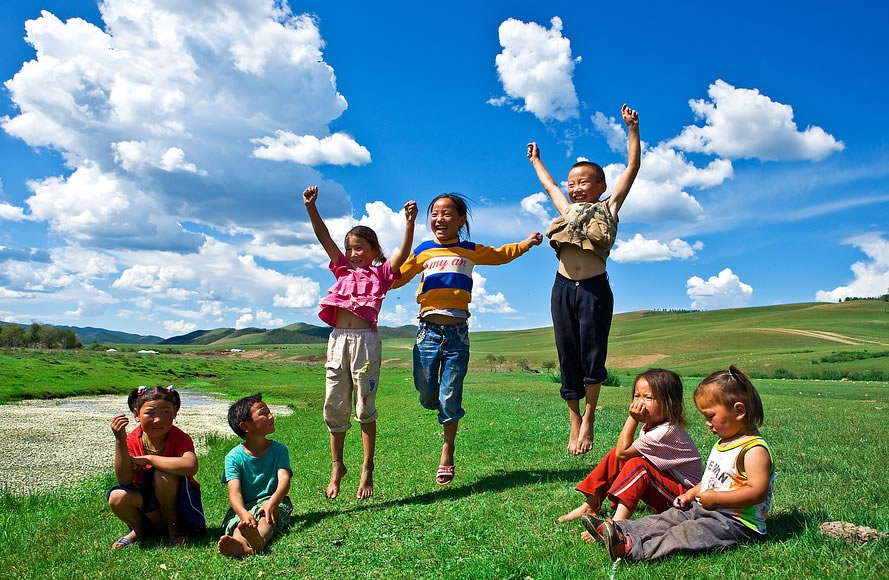
William A Gardner
23
February
2019
Environment
Occasional Blog
Hope in a World of Defeatism

We are called to be architects of the future, not its victims. - Buckminster Fuller
Once upon a time there was a child who grew up in a place of wonder and promise. It was a small planet in the outer arm of a medium size galaxy, one of many that stretched as far as the imagination could reach. This little blue-green planet was rather insignificant in the vast universe. Like all things, the planet was subject to change and evolution. Landscapes changed, volcanoes erupted, temperatures and seas went up and went down, ice sheets came and went as did tropical forests, and even species appeared and disappeared. All things changed and moved in cycles like the seasons as the planet spun in orbit around its solar furnace.
Where the child lived was a place of beauty where it could laugh and run and take pleasure in the simple fact of existence. Over the years the child learned many things, for knowledge was considered a valuable thing. With knowledge and adulthood came the understanding that all things were subject to change. For better or worse tomorrow would find things different. Then the thought occurred that one could either fear these cycles of change or embrace them as a challenge.
Humans have survived this unsteady world for millions of years, adapting and evolving as necessary. During that time they have increased their understanding of the physical environment and their power to change it. This increase in knowledge and science brought even more power. But as in all things the practice of power brings both benefits and liabilities. Like the sorcerer's apprentice we now fear what we have created and discover guilt in the practice of that power. We are apprehensive not just of the power in our hand but the thoughts in our head. Human nature cannot be denied. How then are we to proceed?
That fundamental question of how to reconcile and deal with this intersection of human power and human nature is at the core of a great number of current conflicts within western civilization. To this must be added a third element: the size and role of government.
There are serious problems in the world that need to be addressed. The one that governments currently focus most upon is that of climate change and related carbon dioxide emissions. But is this the most serious and pressing threat? I would argue it is not. In fact, I would suggest that we are witnessing an example of leger de main where the magician keeps your attention on one hand so you will not observe what is happening elsewhere. Environmental degradation continues. From the standpoint of government there is no money, no income opportunity, in tackling serious environmental issues. Dealing with the problem of chemical pollution is a cost. Protecting watersheds is a cost. Helping agriculture to sequester carbon naturally is a cost. Planting more trees is a cost. On the other hand, if carbon dioxide can be reclassified as a pollutant, energy generated from fossil fuels can be taxed and therefore becomes income. And because energy use has a relatively inelastic demand curve, the tax take is predictable and steady. Result? Carbon taxes. And how has this chicanery been accomplished? By fashioning the impression of a climate crisis and promoting guilt. This is not to suggest that we should not be more efficient with our use of energy. But it is not a crisis.
The near hysteria over this geophysical phenomenon makes me think of primitive people panicking during an eclipse of the sun. You can imagine the High Priest shouting, "Quick, the Gods are angry, we have done something wrong and must find a way of appeasing them! What can we sacrifice? Kneel down. Admit your guilt. And bring your generous offerings to me."

Interestingly, the penance of the people most often involves filling the coffers of the High Priests even when the sun once again shines on the land. Today, the guilt is to be assuaged through higher taxes and less freedom. It is like the self-flagellation of old only with less blood. It is mortification of the pocketbook rather than the body. Guilt is the tool and power is the goal. A politician without money is a politician without power. Follow the money.
Irrespective of their reasons, what most concerns me is the clear determination of government to treat climate change (which the historical record suggests is mostly a natural phenomenon) as a crisis rather than a challenge.1 It is appalling. It is the politics of defeatism and fear. And it is certainly a disservice to the young people who are told they must accept increasing financial penalties to avoid consigning the planet and future generations to a purgatory of extreme weather events.
A recent news story reported a study which claimed that due to climate change hot spells would be hotter, cold spells would be colder, droughts would be dryer and longer, and floods would be more frequent with torrential rain. What? Say that again? It reminded me of the old dodge where a person would flip a coin saying quickly, "Heads I win, tails you lose."
The selling of fear and guilt by governments and the mainstream media is the opposite of good leadership. It is the politics of fear, and if that is how we continue to approach the many national and global challenges of our age, it will not end well.
We need to put Chicken Little back in the coop. The planet will survive. Life is an adventure as well as a challenge. You build a country not by penance and pessimism but by hope that tomorrow can be better. We just need to work harder and smarter and reward productivity. But hope is difficult to sustain under a government that uses guilt to constantly raise taxes. People are more productive when they are happy and have more of their income to spend.
Notes and References
- I recommend reading Bjorn Lomborg's book titled, False Alarm: How Climate Change Panic Costs Us Trillions, Hurts the Poor, and Fails to Fix the Planet. While I disagree with his acceptance of the 'man-made CO2 climate crisis thesis, I do agree that our focus should be on dealing with related current challenges based on real data. As so often happens, the policies of governments in response to the climate predictions will, and are, making things worse for their citizens.

Read Related Previous / Challenges and Crises / Relativism and the Madness of Crowds
Read Related Next / Climate Change and Rising Seas
© William A. Gardner 2024 All Rights Reserved








